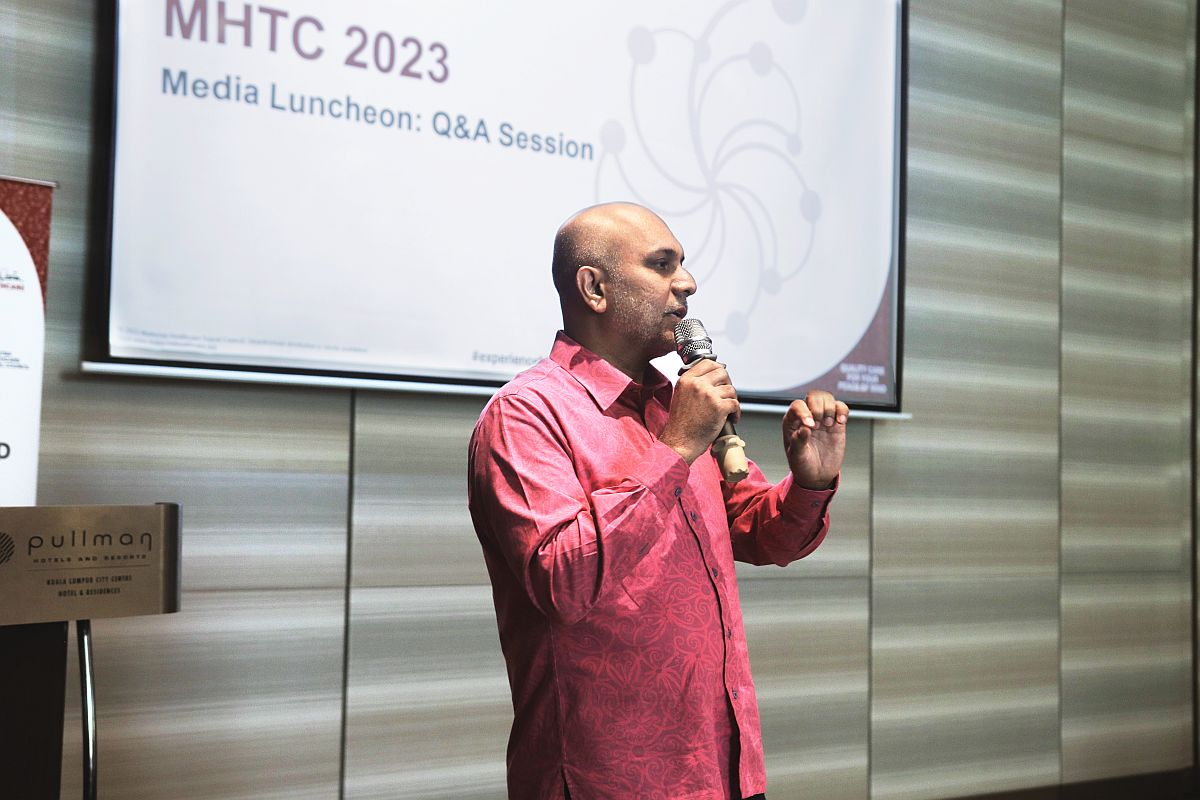KUALA LUMPUR, Feb 10 – The Malaysian Healthcare Travel Council (MHTC) is hoping to get additional funding in the new Budget 2023 that will be tabled in Parliament this month.
Revenue from the private health care sector more than doubled last year to RM1.2 billion, its highest since 2019, boosted by a strong rebound in air travel after three years of pandemic lockdowns.
Under the initial Budget 2023 that was tabled on October 7 last year by then Finance Minister Tengku Zafrul Abdul Aziz, MHTC was given an allocation of RM20 million, an increase from RM15 million allocated in Budget 2022.
MHTC CEO Mohd Daud Mohd Arif said a higher allocation for MHTC should not be viewed as spending, but rather, an investment into a new area of “economic benefit” for the country.
“We can see, if we can invest a bit more, I hope we can bring in a lot more into Malaysia. At the moment, you can all see in the budget which was announced previously, it was RM20 million. It’s not a secret, it’s public information.
“So, I am hoping that we can get a little bit more so that we can invest a little bit more in new markets so that we can bring in more quality patients to Malaysia. We are very hopeful,” Mohd Daud told reporters in Kuala Lumpur after highlighting the performance of the tourism and health care industry in 2022.
The new Budget 2023 is scheduled to be tabled on February 24.
Private health care annual revenue had been steadily increasing since 2011, rising from RM527,000 to RM1.7 billion in 2019, before Covid-19 became a pandemic. The volume of health care travellers had also increased from 643,000 to over 1.2 million over the same period.
Its revenue was cut in half to about RM800 million in 2020 and fell further to RM600 million in 2021, in line with the sharp decline in health care travellers during the two pandemic years (2020: 689,000; 2021: 561,000).
Following its recovery in 2022, MHTC projects private health care revenue to double the RM1.2 billion revenue it recorded last year, by 2025. For 2023, private health care is expected to earn more than RM1.5 billion in revenue.
Mohd Daud said one of Malaysia’s appeal as a health care travel destination is its affordability. According to MHTC’s Malaysia Healthcare Factsheet for 2023, the Malaysian ringgit favours health care travellers to Malaysia, as prices are lower compared to other competitors in the region.
Citing 2019 data from medical tourism guidebook, Patients Beyond Borders, the factsheet noted that health care travellers can save between 60 and 80 per cent on treatment costs in Malaysia, in comparison to the US.
For example, a coronary artery bypass surgery in Malaysia only costs US$20,800 (RM89,772) compared to US$92,000 in the US, US$54,500 in Singapore, US$33,000 in Thailand, and US$29,000 in South Korea, according to estimates compiled by Patients Beyond Borders. The exchange rate may vary depending on the year.
An in vitro fertilisation (IVF) cycle, excluding medication, would cost USD4,200 in Malaysia versus US$12,500 in the US, US$9,450 in Singapore, US$7,500 in South Korea, and US$4,600 in Taiwan. In Thailand, an IVF cycle is estimated to cost US$4,000.
MHTC is establishing Malaysia as the Fertility and Cardiology Hubs of Asia, the Cancer Care Centre of Excellence, the Hepatitis C Treatment Hub of Asia, and an International Retirement Living Destination, among others.
Malaysia largely caters to international patients from Indonesia, China, and Bangladesh. However, the country also receives health care travellers from Hong Kong, Cambodia, Vietnam, Singapore, and Australia.
Last year, MHTC launched the Malaysia Healthcare Travel Industry Blueprint 2021-2025, a five-year industry blueprint aimed to enhance the country’s current health care travel ecosystem, strengthen the Malaysia health care brand, and expand the introduction of Malaysia’s health care offerings to more targeted markets.
The key strategies of the blueprint include improving the quality of medical care, digitising the patient journey, continuing efforts to be a world-leading destination that provides affordable medical offerings to health care travellers, and elevating Malaysia’s offerings in hospitality alongside its position as a safe and trusted destination for both medical and leisure offerings.
Some key initiatives by MHTC that will continue to take place this year include collaboration between hotels and hospitals to offer premium wellness packages, close cooperation with private and public stakeholders to grow the health care travel industry, health facilitator training programmes for Malaysia Healthcare agents abroad, expanding international reach through Tourism Malaysia offices, embassies, Matrade, MIDA, roadshows and health expos, as well as partnerships with state tourism bodies such as in Penang, Selangor, and Melaka.
MHTC is also expected to launch a stop portal as a digital front door for health care travellers later this year.








